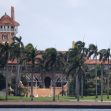When the House January 6 Committee discovered the Secret Service erased text messages on Jan. 5 and 6, members reacted quickly, demanding to know how and why these deletions occurred.
Questions arose from committee members and the press. Was the Secret Service hiding something about the Capitol insurrection? Did the deleted messages include direct evidence of President Trump breaking the law and putting Congress in danger by ignoring weapons-wielding MAGA event attendees right before the deadly Capitol Hill insurrection?
During the hearings, White House staff and witnesses of the January 6 events shocked the nation with allegations that then-President Trump, knowing about weapons at this pre-Capitol Hill event, still allowed them at his rally (which then became the march to the Capitol), because they were MAGA supporters and not out to get him personally; claiming Trump knew then-Vice President Pence was being targeted for violence and much more.
A witness under oath said Trump lunged at a Secret Service agent after the agent refused to take him to join the protesters at the Capitol. The Committee was told the Secret Service ‘downplayed’ potential violence days before the fatal riots, and it was well known that at the pre-insurrection Trump rally, MAGA attendees were armed with guns, knives, ropes and more.
When word that the Secret Service erased key January 5 and January 6 messages came out, the biggest question became, was it coincidence - or something far more nefarious?
And, if the Secret Service deleted messages purposefully, did they break federal criminal laws? The answer, as detailed below, is yes.
The suspicious timing of the Secret Service deleting some vital January 5 and 6 messages left millions of US citizens and most Democrats in Congress fuming.
“I smell a rat,” said Rep. Jamie Raskin, D-Md.
The Secret Service denies any wrongdoing and released a statement that some phone data was erased because of a planned “system migration” in January 2021.
The statement says, in part, “The insinuation that the Secret Service maliciously deleted text messages following a request is false. In fact, the Secret Service has been fully cooperating with the Department of Homeland Security Office of Inspector General (DHS OIG) in every respect – whether it be interviews, documents, emails, or texts.”
Now, the US National Archives has formally asked the Secret Service to investigate the erased messages matter internally, for both January 5 and 6.
The Inspector General, in a letter sent to the organization Tuesday said, “Through several news sources, the National Archives and Records Administration (NARA) has become aware of the potential unauthorized deletion of United States Secret Service (Secret Service) text messages. These reports address the deletion of text messages dated January 5 and January 6, 2021, following requests by DHS oversight officials investigating the agency’s response to the events that took place on January 6, 2021 at the United States Capitol building.”
The Secret Service must now create an official report about the deletions. The letter specifically noted 36 CFR 1230.16(b), which is a law about unlawful or accidental removal, defacing, alteration or destruction of records.
The letter requests the Secret Service provide this report within 30 days, detailing specifically what happened to any erased messages.
“If it is determined that any text messages have been improperly deleted (regardless of their relevance to the OIG/Congressional inquiry of the events on January 6, 2021), then the Secret Service must send NARA a report within 30 calendar days of the date of this letter with a report documenting the deletion,” the letter notes. “This report must include a complete description of the records affected, a statement of the exact circumstances surrounding the deletion of messages, a statement of the safeguards established to prevent further loss of documentation, and details of all agency actions taken to salvage, retrieve, or reconstruct the records.”
Legally, what is the Secret Service allowed to do with messages or other communications if Congress requests specific information, such as data relating to the January 6 insurrection? And, though the Secret Service is bound to protect the President of the United States, does this protection include deleting messages damaging to that President?
The answer is no, they cannot delete or hide anything from Congress. If the Secret Service intentionally destroyed text messages from January 5 and 6, after the Department of Homeland Security’s Office of Inspector General requested their records, then a serious legal violation has occurred.
The organization Citizens for Responsibility and Ethics in Washington (CREW) sent a complaint to the Department of Justice saying the Secret Service had violated “federal criminal law.”
DHS Inspector General Joseph Cuffari, in a letter to Congress, shared his deep concerns about the Secret Service deleting vital messages from both the day before and during the insurrection. Attorneys from CREW explained.
“It is extremely troubling to think that the Secret Service would destroy key evidence in any investigation, let alone one that is central to getting answers and accountability for the unprecedented attack on our democracy that occurred on January 6, 2021,” said Chief Counsel Donald Sherman of CREW. “The Justice Department must investigate immediately.”
Sherman added, “The Federal Records Act requires that agencies like the Secret Service preserve records so that there is a complete and accurate history of the government’s actions and decisions. It is especially distressing to see such behavior from a federal agency that had such critical duties during the attack on the Capitol and had a front row seat to former President Trump’s behavior that day. The Justice Department must take this apparent violation of federal law seriously.”






